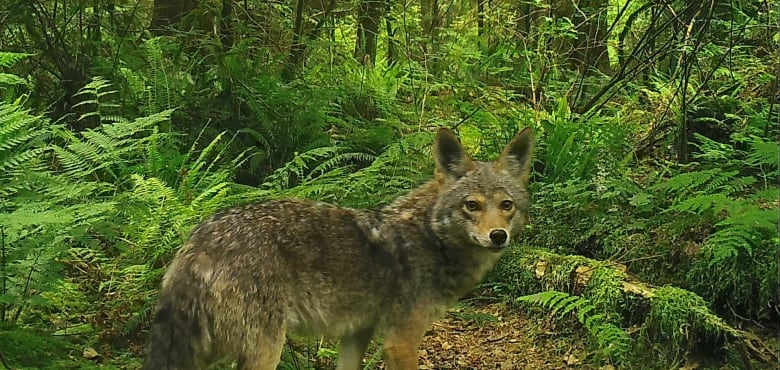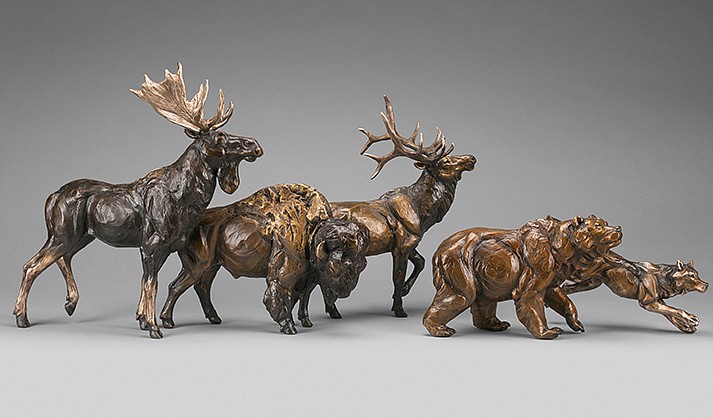B.C. pair charged below B.C’s Wildlife Act with feeding Stanley Park coyotes

A person and a lady arrested a yr in the past for allegedly feeding coyotes in Vancouver’s Stanley Park have been charged with 4 offences below the Wildlife Act and should abide by particular bail situations as their case winds its approach by way of provincial court docket.
CBC Information has discovered that Kemthong Clasby and Terence Lee Clasby have been charged on Oct. 8, 2021, below sections of the B.C. Wildlife Act associated to leaving or inserting attractants for harmful wildlife.
Regardless of attempting to substantiate prices over the previous yr by way of the Ministry of Atmosphere, which is chargeable for the B.C. Conservation Officer Service (BCCOS), CBC Information solely discovered of the fees by way of the B.C. Prosecution Service this week.
The Clasbys are subsequent in court docket on Oct. 4, which might be used to repair a date for his or her trial.
On Sept. 22, 2021, conservation officers arrested two folks and seized a car for allegedly feeding coyotes in Stanley Park.
The arrests got here a day after the park absolutely reopened to the general public after a two-week nighttime closure to cull aggressive coyotes. The B.C. Prosecution Service mentioned in an electronic mail that the alleged feeding incidents within the park occurred on Sept. 19 and 20, 2021.
From December 2020 till August 2021, 45 folks reported being nipped or bitten by coyotes within the park, with specialists arguing that the animals’ habituation to people was an element within the assaults.
Ordered to remain out of Stanley Park
In court docket paperwork, the Clasbys, whose bail listening to is below a publication ban, have been launched from custody on Oct. 28, 2021, below situations to not go to Cameron Park in Burnaby or Stanley Park until travelling by way of the park alongside Freeway 99 (the Stanley Park Causeway).
The situations additionally say they need to “not possess any meals or meals waste, compost or different waste or rubbish that would entice harmful wildlife whereas in any municipal, regional or provincial park within the province of British Columbia.”

Individuals charged with feeding wildlife can face important fines as a result of hazard it poses to people and animals. In October 2021, a lady in Whistler was fined $60,000 for methodically leaving meals out for black bears in 2018, a few of whom needed to be destroyed by conservation officers.
The justice within the case imposed the next effective than the one requested for in a joint submission from the Crown lawyer and the defendant’s lawyer.
“I remained unpersuaded that the sentences proposed adequately mirrored the gravity of the offences, the offender’s culpability and the rules related to the offences, notably deterrence,” wrote Decide Lyndsay Smith.
Victoria Shroff, a lawyer who has practised animal legislation for greater than 20 years and is the creator of Canadian Animal Legislation, mentioned the case will probably be utilized in deliberations over the Stanley Park feeding case.
“The item of those court docket instances is to principally educate the general public in lots of methods by sending a message that this is not going to be tolerable. This isn’t OK. What you might be doing with animals issues.”
On the time, the BCCOS mentioned the fines imposed for the Whistler case have been the very best ever below the Wildlife Act for feeding wild animals.

In 2021, after repeated warnings to the general public to not feed wild animals in Stanley Park, to not go away rubbish round and to not go to the park at night time, the province stepped in with a coyote cull as a final resort. 4 animals have been destroyed whereas conservation officers killed seven earlier than the park’s closure.
The Vancouver Park Board has mentioned that indicators, training, higher rubbish receptacles and a brand new bylaw prohibiting the feeding of wildlife of any variety in any metropolis park have helped remove aggressive coyote assaults.
The province mentioned in an electronic mail that there have been no coyote assaults reported to the BCCOS in Stanley Park because the conclusion of the Ministry of Forest’s two-week coyote trapping program.



